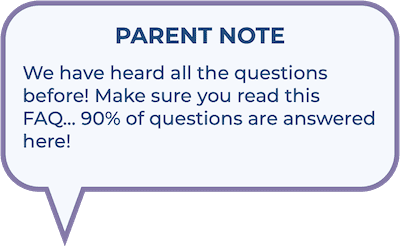
Grade 12
Understanding the UK’s UCAS Clearing system
In this section you can:
- Learn about testing from the experts.
- Exploe the critical questions that need to be answered.
- Get a different perspective from people who have done Clearing.
- Do two things now that will make a difference.
- Get answers to your frequently asked questions.
- Tell us what you’re on your mind…

The Expert View
Our resident expert will take you through all the ins and outs of the UK’s UCAS Clearing Process.
Important Links
Read this to get the complete picture…

Introduction
Clearing allows students who failed to meet the requirements of their conditional offers- both Firm and Insurance- to find a place to study at a UK university. Clearing starts in July and continues until October.
So how does clearing work?
Many students think that if they don’t meet the requirements of their offer, then that is the end of their dream of going to university. Nothing could be further from the truth, there are different ways around this problem, clearing being one of the better-known ones.
Want more? Click here to read the full article...
Before we get into clearing, let’s examine a few options:
Re-marks
Contact your college counselor and discuss the possibility of having one or more of your subjects remarked. He/she can see the detailed marks and will know if you are close enough to a grade boundary to make this feasible.
Contacting the University
- Failed at Firm Choice, got a place at Insurance Choice
Congratulations! You are off to university in the autumn. But you would still prefer to go to your firm choice university…
Be proactive, get on the phone and call the university admissions office. You have to do this yourself; you are an adult now and they don’t want to, or are not allowed to, talk to mum and dad.
Trying to get into your firm choice university. These are the options open to you.
Call up your firm choice university and explain that you only missed your offer by one or two points and that you are very keen to go there. Remind them that it is your number one choice and that you are committed to that university. Also mention that you are an international student – UK universities like international students because they pay more money than British students. If this sounds mercenary, well it is. Higher education is a business after all.
The university can only reply in one of three ways to this request:
‘YES’
Problem solved ☺
‘WAIT’
The university may ask you to wait as they need to look at the UK exam results before they know if they have any spare places on the course that they can then offer to you. This is known as ‘The Wait List’ or ‘Near Miss List’.
‘NO’
Don’t take no for an answer, explain that you are having some papers re-marked (if you are), and ask the university not to decline you yet. They will then ask you to inform them as soon as the result of your remark is known. This buys you a little time, and prevents you from being outright rejected.
Very important – ask the University to put you on the ‘Near Miss List’. This is a sort of unofficial list that the university may go back to if they find themselves in a position of needing to fill empty places on a course
Often, they’ll say to you that they’re going to wait-and-see what the situation is when the UK exam results are published, because it’s only then that they know if they have a spare place to offer you. If you find yourself in this position, it’s worth calling back a couple of weeks later just to remind them that you are still committed and you can ask them if they can make an earlier decision and accept you anyway. This often happens.
If this does not work, you still have a place at your insurance choice university.
(b) Failed at Firm and Insurance choices
- If you missed out on your Firm choice by several points, it is probably best to call up your Insurance choice university and explain that you only missed your offer by one or two points and that you are very keen to go there. Remind them that you are committed to that university. Also mention that you are an international student – UK universities like international students because they pay more money the British students. If this sounds mercenary, well it is. Higher education is business after all.
There are three possible outcomes from your phone call
‘YES’
Problem solved ☺
‘WAIT’
The university may ask you to wait as they need to look at the UK exam results before they know if they have any spare places on the course that they can offer you. This is known as the ‘Wait List’ or ‘Near Miss List’
‘NO’
Don’t take no for an answer, explain that you are having some papers re-marked (if you are) and ask the university not to decline you yet. They will then ask you to inform them as soon as the result of your remark is known. This buys you a little time, and prevents you from being outright rejected.
Very important – ask the university to put you on the ‘Near Miss List’. This is a sort of unofficial list that the university may go back to if they find themselves in a position of needing to fill empty places on a course
Often, they’ll say to you that they’re going to wait-and-see what the situation is when the UK exam results are published, because it’s only then that they know if they have a spare place to offer you. If you find yourself in this position, it’s worth calling back a couple of weeks later just to remind them that you are still committed and you can ask them if they can make an earlier decision and accept you anyway. This often happens.
So, you’ve tried phoning, and you have not yet got a university to commit to giving your place. Time to go to the second phase of the plan:
- College Counselor Contacts University
Talk to your college counselor and ask him/her if they can write an email and/or phone to put in a good word for you. This is an opportunity for the college counsellor to flag up any extenuating circumstances that may have negatively impacted your exam results. He/she will be able to see your predicted grades ,your semester grades etc. If those grades were significantly higher than your final IB results, there may be a reason and that he/she can give the university as explanation for your disappointing final grades. Here are a few things that counselors may possibly use as a rationale for your disappointing performance:
Change schools, long-term illness, family bereavement, mental health issues, health issues, frequent changes of teacher during the IB diploma program, reduced instruction time etc.
We have developed the above processes over many years and successfully placed students in the first-choice university as a result. There is usually a good chance of success if you’re determined and don’t give up easily. Also, you have a better chance of getting into one of the universities that you really want if you actively pursue the advice offered above.
If none of this works, then it’s time to use CLEARING
There are several pieces of advice we can give you to help you find a university place in clearing:
- Start calling the universities the day your exam results are published and you discovered you didn’t have enough points. The early bird catches the worm.
- If you had an inkling that your exam results were not going to be quite as awesome as you hoped, it’s a good idea to do some research and make a list of the universities that you plan to call if you need to use clearing. That way you’ll be first in line to be offered a place.
- Be flexible, and by this we mean look at university courses that are not necessarily identical to the original ones you applied for. E.g. you applied to International Business and the university wanted 35 IB points, however they have an almost identical course called ‘Business plus a foreign language ‘ and that course only requires 33 points.
- Be flexible as to where you go and study. If you are only prepared to study in London, then clearly you are limiting your choice. If you’re more open-minded and are prepared to study in one of Britain’s other cities, then you have a much better chance of finding a place to study at a good university.
Action ideas
Things you can do that will make a big difference.
Idea 2:
Open your mind!
Spend some time imagining, ‘What if’ scenarios around the possibility of missing your predicted grades. Do this POSITIVELY and plan for 2 points under and 4 points under. Think of other courses that you may really like…

Parent Perspective
Find out what others who have gone through it think.
Student Perspective
Find out what others who have gone through it think.
Some critical questions that need to be asked
Sometimes the questions are more important than the answers.
question 1:
How flexible am I prepared to be in terms of courses and location?
question 3:
Am I prepared to be proactive and take ownership of this process?
question 2:
Have I found a course in clearing that I’m excited about and looking forward to studying?
Wigsbury Frequently asked questions

Quick answers to the important questions
Can I apply to different universities, ones I did not apply to on my UCAS application?
Yes, you can apply to any university course in any subject that has a vacancy. Just look in UCAS course search.
Do I have to apply to the same subject through clearing, or can I apply to a different subject?
You’re not restricted to applying for the same subjects as you put on your UCAS application, you’re free to change subject and apply for any course that has a vacancy.
How will I know that I am entitled to use Clearing?
You will see your Clearing Number in UCAS track. Remember you can only use Clearing if you are not holding a place. This means that you would have to be declined by your firm and insurance choice universities, or you would have to go into UCAS Track and cancel your places yourself.
How can I find out which university courses still have places open?
There is a constantly updated list on UCAS course search.
Can I apply to medicine through clearing?
In theory you can apply to any subject that has a vacancy, in practice this is almost never the case with medicine as it is a highly competitive course and fills up very quickly.
I want to go to Oxford; do they have places in Clearing?
In theory you can apply to any subject/university that has a vacancy, in practice this is almost never the case with Oxford as it is a highly competitive university and fills up very quickly.
Is clearing just for the UK, or can I apply to Irish universities as well?
You can apply to universities in Northern Ireland through UCAS Clearing as Northern Ireland is part of the UK. If you’re looking to apply to universities in the Irish Republic such as Trinity College Dublin you will not find them in the UCAS as the Irish Republic is a separate country. Check Apply to Irish Universities.
If I apply to Clearing, how long will I have to wait until the university confirms my place?
Most universities will get back to you quickly, usually within a week or two, sometimes within a couple of days.
I haven’t received my exam results yet; can I start using Clearing?
Until you have received your exam results and failed to meet the conditions of your offers, you will not be able to use Clearing as you are still holding an offer. However, you can start looking for universities that have places available, you can do your research, make a short list so that you are ready to go with Clearing as soon as your exam results are published and show that you have failed to meet the conditions of your offers.
Is Clearing just for students who have failed to meet the requirements of their conditional offers, or can I just decline my offers before my exam results unknown and then use clearing?
Yes, you can do this, just go into track and decline your offers and then you will be able to use Clearing as soon as it opens.
How will I know if I am in Clearing? Where do I find my Clearing number?
In your UCAS track, it will say you are in clearing. Your Clearing number is also in track.
I failed to get enough points from both my firm and insurance choices, but I do not see a clearing number in track.
This could be because the universities have been slow in updating. Just call the university and ask them to decline you, and then you will see your clearing number in track. Remember until your firm and insurance choice universities have declined you, you are still theoretically holding a place and therefore not eligible for clearing. Or you can use the ‘Decline Your Place’ button in UCAS track.
I have enough points for my insurance choice, but I have decided I don’t want to go there, I have found a university that has a place in Clearing and I would prefer to go there, but I’m not able to use Clearing. What can I do?
Simple! Just use a ‘decline my place’ button in UCAS track. Just a word of caution, think carefully before you ask a university to decline your place.
When can I use Clearing?
Clearing runs from July until October. You should start using it as soon as your exam results are published and you see that you did not meet either of your offers. However, just as a tip you can start searching for possible courses even before you receive your exam results. That way you will be at the front of the line.
Where can I find Clearing vacancies?
In the UCAS search, remember to use the filter for courses that still have places in Clearing.
How do I add a Clearing choice?
Go to the ‘Your choices’ section of Track and click ‘Add Clearing choice.’ Then enter the details of the course. Only add a Clearing choice if you’ve been given permission by a university.
How do I reply to a Clearing offer?
You don’t need to. It’s up to the university to confirm in ‘Track’. Only add a Clearing choice if you’ve been given permission by a university.
Why has my track not updated to show that I have a place?
Don’t worry, if you have met the requirements of your offer, it will be confirmed. Sometimes it just takes the universities a little time before they do this.
You will know that the university has confirmed your place, because in track you’ll see that your status has changed from ‘conditional’ to ‘unconditional’. This means you’re in☺!
